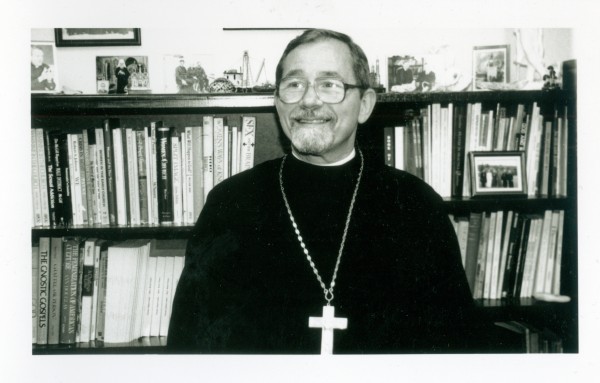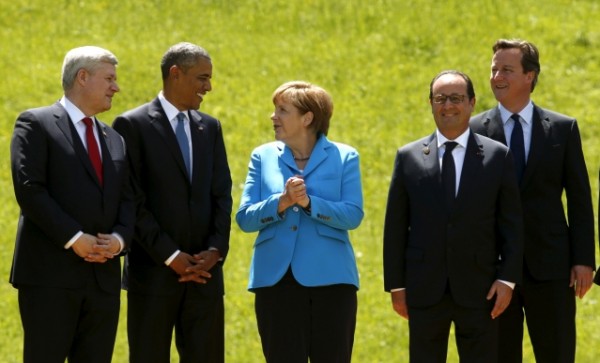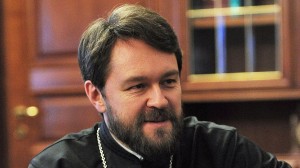 Some of us Christians don’t necessarily want our political leaders to be “observant Christians.” We know ourselves and our histories too well for that. We also don’t want our countries to consider themselves “Christian nations.” We also know what that can mean. So what do we want in our political and civil leaders? Because politics is the “art of the possible,” we want leaders who can practice the political art without selling their souls to the devil. We want people who can achieve maximal results for the common good, as they understand the common good, with the recognition that others can legitimately see things differently than they do. And we want leaders who know that there is no perfect and lasting good in this world, and never dare to promise such a thing to anyone.
Some of us Christians don’t necessarily want our political leaders to be “observant Christians.” We know ourselves and our histories too well for that. We also don’t want our countries to consider themselves “Christian nations.” We also know what that can mean. So what do we want in our political and civil leaders? Because politics is the “art of the possible,” we want leaders who can practice the political art without selling their souls to the devil. We want people who can achieve maximal results for the common good, as they understand the common good, with the recognition that others can legitimately see things differently than they do. And we want leaders who know that there is no perfect and lasting good in this world, and never dare to promise such a thing to anyone.
We want leaders who listen to others, tell the truth and learn from their mistakes. We want leaders who resist reinventing themselves every few weeks to please and appease one or another political constituency or voting bloc. We want men and women who do not demonize their critics and opponents while alleging to respect them deeply. We want leaders who can compromise their convictions within acceptable limits, without betraying their consciences, in order to achieve the best for the most, as they understand the best to be, in cooperation with their political opponents. We want people capable of changing their minds and admitting their errors. And we want leaders who don’t seek “all or nothing” in ideological battles that no one wins and that produce countless casualties. In a word, we want free human beings to lead us, not ideologues or demagogues.
In the American setting, this would mean that when some argue that the invasion of Iraq was an egregious analytical, tactical, political and military error, those who disagree would not label them weak-willed cowards who are betraying our brave men and women in the armed forces and surrendering our nation to evil powers. Or, as another example, when some voice their opposition to abortion, euthanasia, physician-assisted suicide, embryonic stem cell research and gay marriage, their opponents would not accuse them of being heartlessly cruel monsters who oppose modern science and technology, abhor women and minorities, and want people to suffer uselessly as they glorify human agony and pain at the sufferer’s expense. Or, when some Americans think that illegal immigrants should be treated kindly and that ways should be found to integrate them productively into society, their opponents would not call them anarchists who oppose law and order and treat working people with contempt; just as when others say that they want to keep as many jobs as possible in America, with just wages for American workers, their opponents would not accuse them of being selfish and retarded enemies of economic freedom and the system that made America great.
Some of us want political leaders with the courage to conduct an all-out campaign against global and domestic terror, crime, injustice and neglect of the neediest by sacrificial spiritual, economic and philanthropic actions that begin with their nation’s strongest and richest people. And we want them to resort to carefully planned and responsibly executed police and military operations to contain evil only when absolutely necessary, as the very last possible option. We also want all people, not just the poor, to sacrifice equally for justice, freedom, peace and well being for everyone. We want leaders – who tend to be among their country’s wealthiest citizens – to be the leading exemplars of such self-limiting sacrifice that would, for the most part, cause them little personal suffering while costing them plenty of money that they hardly need for their personal and familial well being.
In a word, we want leaders who are not prisoners of power, profit, possession, position, privilege and pleasure. We want men and women who demand from others what they demand first from themselves, and who do for others what they would want others to do for them and their loved ones. Some of us Christians in the United States are convinced that the first step in reconstructing American political leadership is a radical change in the way we elect our leaders. We want an end to the agonizingly extended, disgracefully expensive and endlessly analyzed campaigns that exhaust peoples’ patience and sanity, and lead them into all kinds of temptations. We want a nation governed by people whose actions prove their genuine care and respect (not to say love) for everyone, including America’s most violent enemies whose children will be America’s even more violent enemies if things don’t radically change in our country, both among ourselves at home, and in our dealings with other peoples and nations.
If such political leaders would emerge in America, and indeed in all nations of the world (whatever their present political systems), their religious convictions, authentic or alleged, wouldn’t matter in the least to some of us Christians. Such leaders would, in fact, be an answer to our prayers. We would be their strongest, most faithful and most grateful supporters even when we disagree with some of their policies. We are also aware, when expressing our hopes, that – as an old proverb puts it – we get the leaders, both religious and political, that we deserve.




















